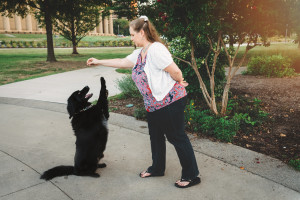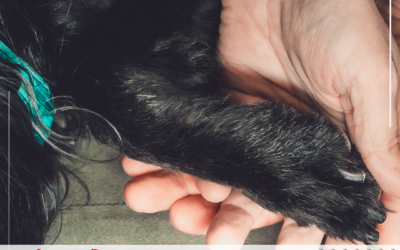 Today marks what would have been Betty White’s 100th birthday. We lost a great champion for animals – not just shelter dogs and cats but primates, birds and zoo animals. Betty White advocated for better zoo conditions, protecting endangered species and adopted many rescued pets as her own. To honor her, the Betty White Challenge is happening on social media today, encouraging people to donate $5 in her name to an animal welfare organization. I will be participating and hope you will join me.
Today marks what would have been Betty White’s 100th birthday. We lost a great champion for animals – not just shelter dogs and cats but primates, birds and zoo animals. Betty White advocated for better zoo conditions, protecting endangered species and adopted many rescued pets as her own. To honor her, the Betty White Challenge is happening on social media today, encouraging people to donate $5 in her name to an animal welfare organization. I will be participating and hope you will join me.
But I also thought this might be a great time to open a discussion about who to donate to, who your money supports and what happens to your money. How do you choose a rescue or shelter to donate or adopt from? This can be very tricky territory. Over two years ago I wrote about Transparency in Animal Sheltering and Rescues and many of these points are important here.
When looking to donate:
- Check to confirm your recipient is a registered charity, usually a 501c3 organization. This not only means your donation may be tax deductible but more importantly, it give some credibility that the organization has done the legal work of setting themselves up and that the IRS knows they exist, which means they have documents to file every year. Charities do take about a year to be rated, as IRS forms need to be filed and reviewed, so newer rescues will not show up on these sites with a rating.
- Check the financial rankings and integrity of the organization using a site such as Charity Navigator or GuideStar. You want to know what percentage of donations actually go to the cause. The recommended guidelines for this are to select a charity where less than 30% of its total costs to administration and fundraising expenses.
- Read reviews on Yelp or Google. See how they treat their employees and volunteers and adopters.
When looking to adopt:
- Don’t just go where the cute puppies are. This can be tempting but if a rescue or shelter has a constant supply of designer breeds or purebred puppies, where are they sourcing them from? Many rescues claim they have “rescued” puppies, when really they’re often coming from backyard breeders, puppy auctions or other unscrupulous sources.
- Request to see all medical records, not just vaccine records. Ask if their staff or partner vet is available for you to discuss any concerns you have. Look for any discrepancies between intake paperwork and what is being advertised. Glaring age, breed or weight differences should be a red flag.
- What is the dog’s known history. Was it stray? Owner surrender? Hoarder? Puppy mill dog? Meat market dog? Street dog from another country? History is important because dogs with poor early socialization or bad experiences may be may require more extensive training but be sure to confirm what they KNOW versus what they’re ASSUMING.
- What socialization have they done, especially if the puppy is under 14 weeks of age? What do they know about the dog’s formative early months of life? Do they have the puppy’s mother? Have they been using food during socialization or just exposing the dog to things without ensuring it was a positive association? (If the mother is available/known, insist on meeting her. There is a strong likelihood that if the mother is fearful, the puppies will be fearful. What you see in mom, is very likely going to be what you see in the puppies as they age.)
- Ask to see a behavioral assessment. If the dog has come from another shelter they will have some sort of behavioral assessment from the transferring organization. Concerns should be discussed with their certified trainer (who should also be the one administering behavioral assessments). Inquire about guarding behaviors, body handling and sociability observed while the dog has been in their care. Receiving organizations often repeat these tests on their own, for insurance purposes. Ask to see them.
- If the dog was an owner surrender, why? Was it for behavioral reasons? Many rescues and shelters often try to downplay behavioral concerns or owner blame. This is a red flag.
- Where has the dog has been while in this organization’s care? In a kennel? In a foster home? What interactions has the dog had with children, kids, cats or other dogs?
- What training methods do they use? If they don’t publicly say, ASK! What does their contract specify? It should specify they do not condone the use of aversive methods including prong, choke or shock collars or electric fences.
- Research and read reviews on Yelp, Facebook and Google. People should have a positive interactions, good communication, healthy dogs (or transparency about known health issues), responsiveness to questions or concerns and overall good experiences. Lack of this is a red flag.
- Observe: Before you’re ready to adopt, visit adoption events or the facility a few times (Covid has made this part more difficult as many places are closed or appointment only). But, do the animals seem happy, well cared for and the volunteers/staff/fosters happy to be doing their job? Are the dogs being happy talked and given treats? How are the animals being handled? Are they being dragged around by their leash at events? Are they cowering in their crates?
I will say there are very few rescues or shelters that I know of that do all of these things, so sometimes it is a choice about selecting the one that ticks the most boxes and then being as proactive as you can with training and management to set your adopted friend up for success. But please do not believe love cures all. Sadly, it doesn’t. Love doesn’t change your animal’s DNA and I have so many clients that were taken advantage of because the rescue or shelter told the adopter that the dog “just needs time and love” to fix serious behavior issues. Yes, decompression is important but so is quality, positive reinforcement training. If you’re preparing to adopt, schedule a pre-adoption session with me today!
Now, if you’re able, please go donate! (I’ll be donating today to Small Bites Rescue, run by a wonderful veterinarian, Dr. Loose, in Brooklyn NY.)
![]()





